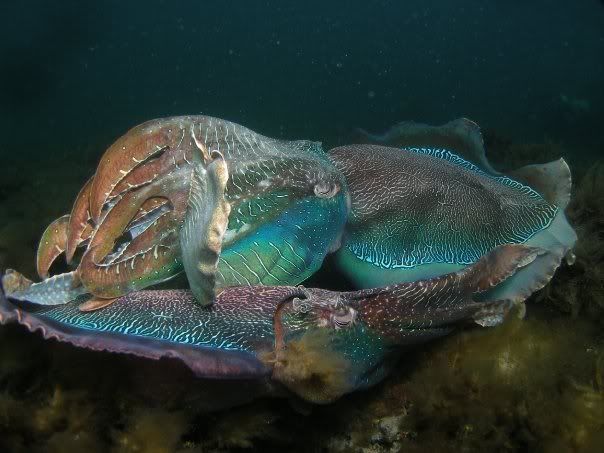G'day - I'm actually poking my nose back in here as I'm bucking the trend and travelling to Michigan next month for a prospective postdoc on sexual selection in marine fish. Want to know if I should bother bringing my dive gear to Michigan for winter or just plan on staying inside and complaining about the cold!
Basically, I'm 27, and should I get this postdoc, I'll be looking at a salary of $30-40K. I've never met a rich scientist. Should you wind up head of department in a university, you'll do ok, but it's a career choice you take for the love, not the money.
My education thus far has been circuitous, as I left after a coursework MSc and worked as a zookeeper for a little while before going into research, but in a nutshell I did a BSc (Environmental Biology), a MSc (Conservation Biology) via course work, a MSc via research in Molecular Ecology on Amazonian fish and just completed a PhD working on evolutionary biology in desert geckos.
So, tips....
a) Make sure it's what you want to do. You're going to be a student for a really, really long time. That means no money for a long time and when people you know are buying houses, having babies etc and so on you'll be telling them "Yeah, I'm still at university..."
b) Treat Undergrad like a real 9-5 job. I now teach a bit of it and really really wish I did. When I hear "It sucks, I have a 4 hour break in the middle of the day. I might go to the bar" I immediately know that later in the semeter I will hear "It sucks, I have to pull an all nighter both nights this weekend to get my assignments done."
c) Summer break ain't a holiday - for research scientists (especially herpetologists like I've been here in Australia) it's fieldwork season. Volunteering for field work will not only get you out into some incredible country, it is hands down the best way of networking with the people who are looking for research students and will write compelling scholarship referrals.
d) Remember, it's not the organism that's necessarily interesting, it's the questions. Obviously my field is biased towards genetics - I spend 90% of my time behind a lab bench or a computer, and it wouldn't matter if I was working on slime mould or stingrays.
It also seems the more charismatic a study animal is, the worse the actual research. This year we had 2 MSC students with polar opposite projects. One worked on wolves in Scandanavian forests. He never saw a wolf, his field study consisted entirely of being cold and collecting scats. The other worked on land snail taxonomy in Paupa New Guinea and spent his time flying around the PNG highland rainforests in helicopters - and is describing at least 4 new species.
That and confining yourself to just marine, or dolphin, or snake or whatever projects will severely limit both your prospects and expertise.
e) If you want to do research, don't do a coursework masters in conservation biology.

Good luck





